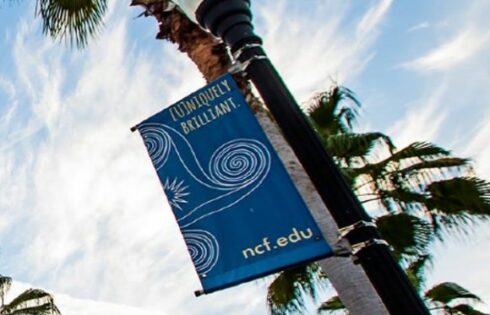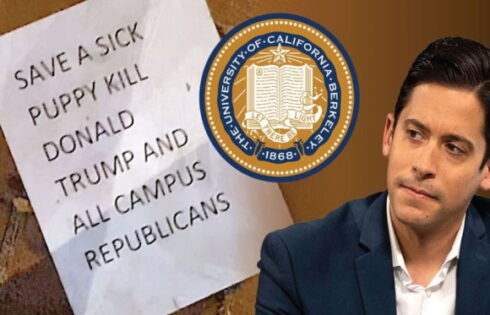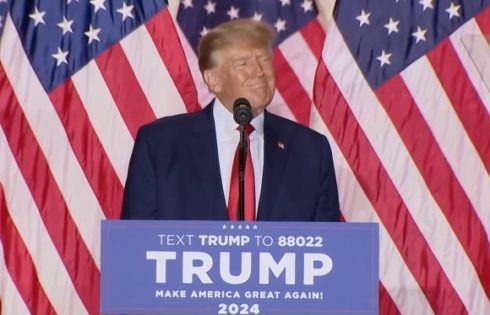
OPINION
Campuses’ war against American exceptionalism continues unabated
Today marks America’s 238th birthday. From our founding to the present the United States has been a global force for good. Since the Second World War, especially, the dominance of the United States has helped lift more people out of poverty and has instilled more democracies around the world than at any other point in history. We are the “indispensable nation,” as it was once famously said.
But given our track record – unmatched levels of national and personal wealth, promotion of freedom around the world, the greatest military in history, and the most effective public education system designed – why do some liberal academics want to dilute the importance, significance, and exceptionalism of the American experiment?
Aside from the anti-American rhetoric often promulgated by professors, today I speak to the notion of “global citizenship” that has become popular on campuses across the country.
On its face, the term is innocuous enough, but that’s the point, as Peter Wood of the National Scholars Association explained recently in a lengthy expose on the term. The concept of “global citizenship” fosters “a soft disdain for the American civic tradition” by discreetly undermining its values.
Campus Leftists have long ago turned their backs on the overt, obvious, and distasteful displays of American self-guilt (and when they do let it out, it shows). The “values” that were once fought for by loud protests, sit-ins, and riots are now handed down in the form of “global studies” classes, anti-capitalist economics courses, and even the study of non-Western histories and languages to the detriment of Western values.
“Students are enticed to feel open-hearted, broad-minded, and gently virtuous,” Wood notes.
There’s nothing wrong with that per se. But as higher education observer Jay Schalin writes, this unsuspecting magnanimity seeks to “mask the push to implement intensely political academic practices.”
The point is that students are taught to be “above” the West and Western culture – living in it but not of it – and in turn come to disdain or otherwise feel apathetic about it. The truly global citizen transcends the limits of the nation-state in general and the West in particular.
As Wood points out, the term “global citizen” cannot literally be true: to be a citizen of something means not being a citizen of something else. But the term holds appeal, especially to those students who aspire “to connect to the larger world beyond their hometowns.”
And why not? A student from Small Town, U.S.A at Every College, America is apt to be exposed to a lot of things for the first time, not least of which is traveling in a meaningful sense (study abroad programs have been around for decades and are as popular now as ever), as well as a sense of collective responsibility (often called “privilege”) that only universities seem to be able, and willing, to impart. “Global citizenship” plays on this exposure and these discoveries by playing down the importance and overwhelming goodness that is the United States in favor of non-Western and even anti-Western values.
In the end, as Wood concludes, campus Leftists seek to inculcate students to “reject the idea that the United States is good and that college graduates should strive to be statesmen who advance its principles.” On the contrary, the United States is either evil or insignificant and as a “global citizen,” graduates should “do the right thing” – however “right” is defined.
Bowdoin College, for example, leads the field of promoting global citizenship, as well as catching criticism for it. The National Association of Scholars studied Bowdoin’s curriculum and found that American history courses are not required for history majors and American literature courses are not required for English majors.
Furthermore, regardless of major, there is no foreign language requirement for graduation. But students are required “to take one course each in the areas of ‘Exploring Social Differences’ and ‘International Perspectives.’ There is no such requirement for anything dealing with America’s founding principles, commonalities, or culture.”
Most other universities have similar protocols – nearly 30 of the nation’s top-ranked liberal arts colleges do not require students take a survey course in U.S. history.
The ones that do require a history class mandate ones that are arcane and narrow in scope.
The University of North Carolina, for instance, requires only one history course, a mandate that can be met by taking such esoteric classes as “Courts and Courtly Culture in 16th and 17th Century Spain” and “Shalom Y’all: The Jewish Experience in the American South.”
What’s more, a 2013 survey by The College Fix of 31 public and private universities across the nation found that the subject of capitalism, America’s free market system, is often either maligned, ignored, or taught from a perspective other than objective economics. It’s not uncommon for professors to tout the alleged blessings of Marxism while giving short shrift to capitalism, epitomizing the notions of global citizenship.
Innocuous though it may sound, in practice “global citizenship” is harmful to American and Western values at home and abroad. At the least, the notion is suspect. At the most it is imminently detrimental to the United States, our values, and our future.
College Fix contributor Dominic Lynch is a student at Loyola University Chicago.
Like The College Fix on Facebook / Follow us on Twitter
IMAGE: Go To 10/Flickr




Please join the conversation about our stories on Facebook, Twitter, Instagram, Reddit, MeWe, Rumble, Gab, Minds and Gettr.